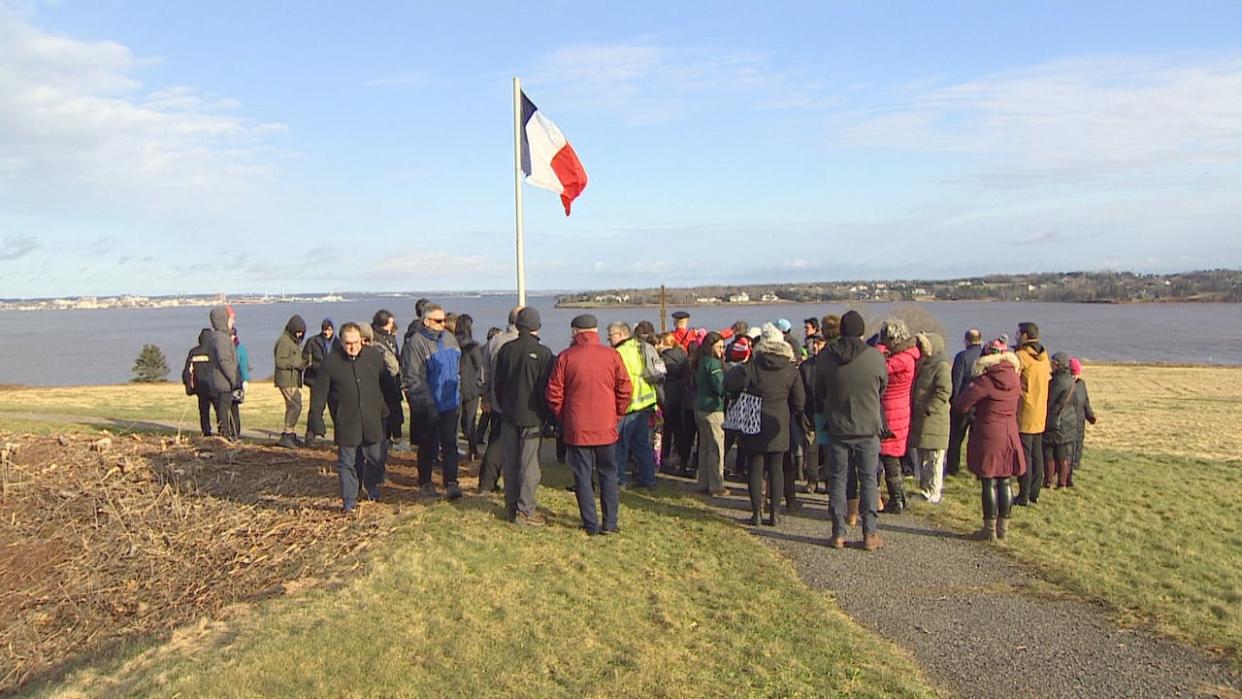Islanders mark Acadian Day of Remembrance

Members of the Acadian community, dozens of school children and local officials gathered Wednesday to mark Acadian Remembrance Day at Skmaqn–Port-la-Joye–Fort Amherst National Historic site.
There was music, a silent walk, and readings that highlighted the resilience of the Acadian community.
Dec. 13 has a special meaning for P.E.I.'s Acadian Community. On that day in 1758, a ship carrying Acadians being deported to France sank. More than 350 people died.
It was the greatest loss of Acadian life in a single day, said Georges Arsenault, an Acadian historian.
"It is to recognize the difficult years that the Acadians had and of course resilience because we are still here, we've been on the Island for over 300 years and French is still a language which is alive, that has been spoken on the Island for 300 years," he said.

The memorial site at Skmaqn—Port-la-Joye—Fort Amherst to remember the Acadians who were deported from Prince Edward Island. (Jane Robertson/CBC)
One third of P.E.I.'s French population died as a result of deportations in 1758, which included two more ships sinking just days apart with Acadians from the Island aboard, Arsenault said.
"Just in those three days there's about 900 Acadians from the Island that died," he said.
Over 1,000 Acadians managed to avoid deportation, with some families remaining on P.E.I., Arsenault said.
"Those who were deported to France, those who survived finally settled there, some of them, but many left in 1785 to Louisiana. So that is why there is such a close tie between Louisiana and Prince Edward Island," Arsenault said, adding he spoke with an Acadian from Louisiana a few years ago and helped them track their roots to the Island.

Georges Arsenault, an Acadian historian, says he has helped some Acadians track their ancestry back to Prince Edward Island. (Danny Arsenault/CBC)
Antoinette Perry, P.E.I.'s lieutenant-governor and a member of the Acadian community, said it's important for children to learn about the history of Acadians.
"I think education is the key to awaken their spirit to the fact that these injustices have happened but they are happening in our world today as well.... They have to start thinking about what they can do in their daily lives to keep from being part of those injustices themselves. Even small gestures can make for a more equal world."


